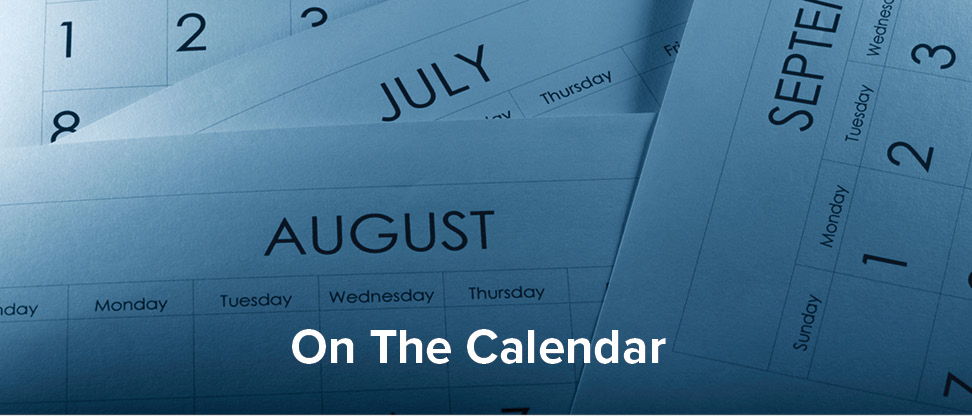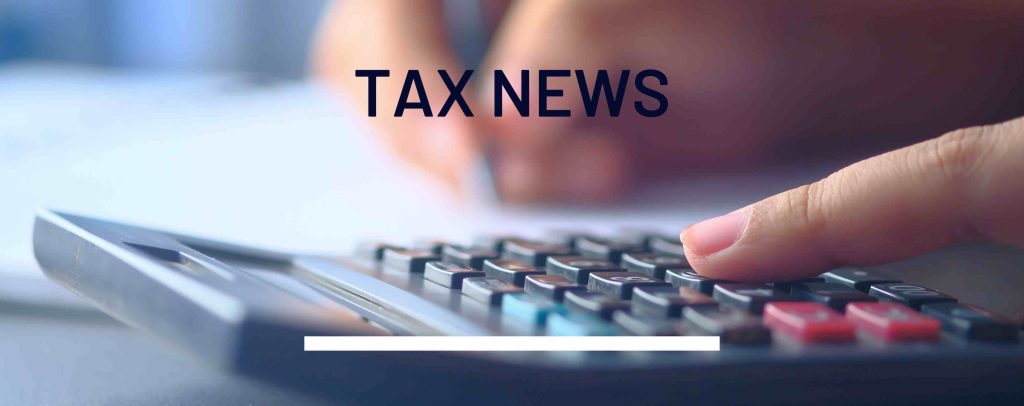Your Special Record-Keeping Edition
Welcome to the new financial year and a chance for us to start the year off with good bookkeeping and record keeping habits and to look ahead and start planning what the next 12 months will look like.
This special record keeping edition of the Bee Group Accountants newsletter contains some valuable information on what records the Australian Tax Office require you to keep to support your tax lodgements and some tips on how to do this effectively in case the ATO request records or subject you to an audit.
Scheduling for Annual Tax Work
As we did last year, we would like to again schedule in your work. This will help us help serve you better as we will be able to ensure that we have enough people in our office to ensure that work is done in a timely and efficient manner.
We will be reaching out to you with our suggested month to complete your annual returns, based on what we did last financial year. If the suggested schedule doesn’t work for you, please just let us know when you would prefer to have your work done as we can move things around at this early stage.
Engagement Letters
Please note that all new work will require a signed engagement letter to proceed. We use an application called Ignition to issue these letters. Please ensure that you read and accept the engagement letter, as we will not be able to start your work without this.
What do I need to provide to begin my annual accounting work?
To begin preparing your annual accounting work, we need certain information from you. When we setup your file we will send you out our general checklist.
We also use a great system called Karbon that issues you with a specific checklist where you can upload the files we need, add comments, and check off work as it is completed.
Karbon has been a game changer for accounting as it is much more secure than your standard email client and it allows you to interact with the work we are doing for you.
Keep an eye out for these checklists and make sure you upload your information as soon as possible so that we can get started on your returns.
Do you bank with Westpac and have a company?
Over the past few months, we have had a number of inquiries about ASIC updates needed for Director and Shareholder names. Most of them have been missing middle names. This can be corrected but it is a manual process so can take some time. If you do bank with Westpac now might be a great time to double check your ASIC records to ensure that your full legal name is included on the records so that you don’t have any issues in the future.

Upcoming Dates for July
1 – Individual income tax returns due from now until 31 October if preparing and lodging yourself
14 – Employers must issue PAYG withholding payment summaries to employees by today
21 – Lodge and pay June BAS (if you lodge monthly)
21 – Lodge annual payroll reconciliation and pay any further liabilities
28 – Lodge and pay April-June 2023 BAS (if you lodge quarterly)
28 – Pay Super Guarantee Contributions for April-June 2023 quarter
28 – Quarterly transfer balance account report (TBAR) for self-managed super funds (SMSFs) due

FY2023 Brings Change in Deduction Rates
In the 2023 financial year, the Australian Taxation Office (ATO) implemented changes to the deduction rates for car expenses and working from home. As we begin preparing your returns for FY2023, here is a summary of the key changes that may affect your deductions.
Working from home expenses
The shortcut method to claim work from home expenses ended on 30 June 2022 and you are now able to use either the actual cost method or the fixed rate method. The actual cost method calculates the additional running expenses incurred as a result of working from home. You must keep written records showing the amounts spent on expenses and depreciating assets and the amount of work-related use. You can find more information here.
The fixed rate method allows you to claim 67c per work hour that you spend working from home. This rate covers home and mobile internet or data expenses, mobile and home phone usage expenses, electricity and gas (energy expenses) for heating, cooling and lighting, and stationery and computer consumables, such as printer ink and paper.
You can separately claim a deduction for the work-related use of technology and office furniture such as chairs, desks, computers, bookshelves. These are generally depreciating assets that decline in value over time. You can also claim the repairs and maintenance of these items.
More information on the fixed rate method can be found here.
Car expenses
You use either of 2 methods to calculate deductions for car expenses – the Cents per Kilometre method or the Logbook method. From 1 July 2022, the cents per kilometre rate for work-related car expenses is 78c, increased from 72c per kilometre in the previous financial year.
More information can be found here.
Low and middle income tax offset
The low and middle income tax offset (LMITO) ended on 30 June 2022. It is not available for 2022–23.
Downsizer contributions
The age an eligible individual can make a downsizer contribution to their superannuation has changed.
If you have reached the eligible age, you may be able to contribute up to $300,000 from the proceeds of the sale (or part sale) of your home into your superannuation fund.
To make a downsizer contribution; the eligible age is as follows:
- From 1 January 2023, 55 years old or older
- From 1 July 2022, 60 years old or older
- From 1 July 2018, 65 years old or older.
For the full eligibility criteria and other details, see Downsizer contributions for individuals.
ATO Data Matching
The Australian Taxation Office (ATO) has recently taken a significant step in expanding its data matching capabilities. In a bid to bolster tax compliance, the ATO has expanded its data gathering efforts to include information from property managers, landlord insurance providers, and sharing economy platforms. This move enables the ATO to cross-reference income and deductions reported by taxpayers with data obtained from these sources to identify any discrepancies. The ATO aims to tackle tax evasion and improve transparency in the real estate and sharing economy sectors.
However, it is argued that this expanded data gathering could lead to potential breaches of personal information and infringements on individuals’ rights. Critics also question the ATO’s ability to handle and interpret the collected data accurately, potentially leading to erroneous tax assessments.
This controversial initiative has sparked a debate about the balance between tax compliance and citizens’ privacy, leaving many sceptical about the ATO’s intentions and the potential implications for taxpayers.
You can read more from the ATO about data matching here.
New Financial Year – Record Keeping Edition
Record keeping plays a pivotal role in maintaining accurate financial information for your business. It serves as the foundation for successful tax compliance, audit readiness, and informed decision-making. In the context of annual taxation work, maintaining proper records is crucial for meeting legal obligations and ensuring a smooth and transparent tax filing process.
One of the key reasons record keeping is important for auditing purposes is that it enables you to substantiate your financial transactions and claims made on your tax returns. During an audit, the Australian Tax Office (ATO) may request supporting documentation to verify the accuracy of reported income, expenses, deductions, and credits. By maintaining comprehensive records, you can readily provide the necessary evidence, reducing the risk of penalties, fines, and potential legal issues.
The start of a new financial year presents an excellent opportunity to establish and reinforce good record keeping habits. You can start with a clean slate and begin using systems to track and organise your financial information. Here are a few reasons why the new financial year is an ideal time to develop these habits:
- Fresh Beginning: The new financial year marks a fresh start and provides an opportunity to review and improve previous record keeping practices. It allows you to learn from past mistakes, streamline processes, and implement more efficient record keeping systems.
- Compliance and Accuracy: Good record keeping ensures compliance with tax regulations and helps to accurately report income, expenses, and deductions. By starting early in the financial year, there is ample time to establish systems, capture all relevant financial information, and avoid the last-minute rush during tax filing.
- Organisational Efficiency: Maintaining well-organised records throughout the year saves time and effort when it comes to tax preparation. By developing good habits early, you can avoid the stress of searching for misplaced receipts or struggling to compile the necessary documentation.
- Financial Insights: Consistent record keeping provides valuable insights into the financial health of a business. By tracking income and expenses, you can identify trends, pinpoint areas of overspending, and make informed decisions to optimise financial resources.
In this special edition of our newsletter, we will be providing specific record keeping information to ensure you keep on top of your records this financial year.
What records do I need to keep?
Keeping accurate records is essential for individuals and businesses in Australia when it comes to taxation. Proper record-keeping not only ensures compliance with Australian tax regulations but also helps in maximizing deductions, minimizing errors, and providing evidence in case of an audit. Whether you are an individual or a business entity, maintaining organized records will save you time, effort, and potential penalties. In this guide, we will outline the records you should keep to facilitate smooth tax preparation and filing in Australia.
Records to keep for individuals:
- Tax File Number (TFN): Maintain a copy of your TFN, which is a unique identifier issued by the Australian Taxation Office (ATO).
- Income statements: Keep records of all income received throughout the year, such as payment summaries from employers (PAYG summaries), statements from government benefits or pensions, investment income statements (dividends, interest), and any other sources of income.
- Expense receipts: Preserve receipts and invoices for deductible expenses, including medical expenses, charitable donations, work-related expenses, self-education expenses, and rental property expenses.
- Investment records: Maintain records of shares and investment transactions, including purchase and sale documents, dividend statements, and any capital gains or losses.
- Property records: Keep documents related to the purchase or sale of real estate, such as property purchase contracts, settlement statements, rental income records, and expenses related to property improvements.
- Superannuation records: Maintain records of contributions to superannuation funds, including employer contributions, personal contributions, and any rollovers or withdrawals.
- Health insurance: Preserve records related to private health insurance coverage, including annual statements or receipts showing premiums paid and any rebate entitlements.
- Education expenses: Keep records of tuition fees, student loan repayments, and any education-related deductions or offsets claimed.
Records to keep for businesses:
- Australian Business Number (ABN): Maintain a copy of your ABN, which is a unique identifier for businesses registered in Australia.
- Financial statements: Keep accurate and up-to-date records of income, expenses, and profits, including sales invoices, purchase invoices, bank statements, and financial reports.
- Payroll records: Preserve records of employee wages, superannuation contributions, and payroll tax withholdings, including employee payment summaries, timesheets, payroll registers, and superannuation payment records.
- Business expenses: Maintain receipts and invoices for all business-related expenses, such as rent, utilities, office supplies, advertising costs, travel expenses, and equipment purchases.
- Inventory records: Keep track of inventory purchases, sales, and stock levels, including purchase orders, sales records, stocktake reports, and valuation records.
- Asset records: Maintain records of business assets, including purchase and sale documents, depreciation schedules, and any other capital asset transactions.
- Business loans and financing: Preserve documentation related to business loans, including loan agreements, repayment schedules, and interest statements.
- Business activity statements (BAS) and supporting documents: Keep copies of all filed BAS and any supporting documents, including sales and purchase records, GST calculations, and tax invoices.

SMSF Record Keeping
When managing a self-managed superannuation fund (SMSF), it is crucial to maintain accurate and organised tax records. These records help you comply with tax regulations and provide evidence of the fund’s financial activities.
Here’s a list of tax records to keep for your SMSF:
- Trust deed: The original and updated versions of your SMSF trust deed should be maintained. This document outlines the fund’s rules and governing provisions.
- Financial statements: Prepare and retain copies of the fund’s financial statements, including the balance sheet, profit and loss statement, and cash flow statement. These statements provide an overview of the fund’s financial position and transactions.
- Contributions records: Keep detailed records of all member contributions made to the SMSF, including personal contributions, employer contributions, and any other types of contributions. This includes contribution dates, amounts, and any associated documentation.
- Investment records: Maintain comprehensive records of the SMSF’s investment activities. This includes documentation of purchases and sales of assets, dividend statements, rental income records, and any other investment-related transactions.
- Bank statements: Retain copies of bank statements for all SMSF bank accounts. These statements should clearly show deposits, withdrawals, interest earned, and any associated fees.
- Member statements: Keep records of member statements, which reflect individual member balances, transactions, and investment earnings. These statements provide a breakdown of each member’s entitlements within the fund.
- Minutes of trustee meetings: Document and store minutes of trustee meetings, which outline decisions made by the SMSF trustees. These minutes serve as evidence of compliance with legal requirements and adherence to the fund’s investment strategy.
- Tax returns: Maintain copies of the SMSF’s annual tax returns, including the accompanying schedules and supporting documentation. These records should reflect the fund’s income, deductions, and tax liabilities.
- ATO correspondence: Keep copies of any correspondence with the Australian Taxation Office (ATO) regarding your SMSF. This includes notices of assessment, rulings, and any other official communications.
- Compliance documentation: Maintain records demonstrating the SMSF’s compliance with superannuation laws and regulations. This includes documentation related to audits, legal advice, and any other compliance activities undertaken.
- Insurance policies: Retain copies of insurance policies held by the SMSF, such as property insurance, liability insurance, or income protection policies. These records help verify the fund’s coverage and premiums paid.
- Other relevant documentation: Keep any other relevant records specific to your SMSF, such as minutes from investment committee meetings, property valuations, borrowing arrangements, and any additional documents required by the ATO or other regulatory authorities.

The team at Bee Group Accountants are celebrating a fantastic finish to the 2023 financial year. The operational adjustments that we made set us up for a smooth end of year and we hope that you have also noticed the positive changes in our team.
We are all prepared for this new financial year, so keep an eye on any emails from us about your upcoming annual returns. We look forward to working with you again!
New Blog Available! Unclaimed Money in Australia
Did you know that in Australia, there is approximately $1.5 billion in lost shares, investments, bank accounts and life insurance. Get online and check to see whether you have any money out there that belongs to you!
Need Help?
The Bee Group Knowledge Base is filled with articles to help you with everyday frequently asked questions:
https://help.thebeegroup.com.au/
Alternatively, you can submit a help request online via our site at: https://www.thebeegroup.com.au/support/
As always, please reach out to us if you have any questions or queries. We look forward to hearing from you.
Have a fantastic July!
Sheree & the Team at Bee Group Accountants

We have been working hard at improving our systems and building up our team. This means that we are now able to start accepting new clients. If you have someone that you know who is looking for an accountant – please ask them to get in contact with our office via phone, email or through our website.
If there is anything that you think we can improve on too, please be sure to let us know. We are working hard to improve your experience in working with us as well!
We truly appreciate the opportunity to help and welcome any recommendations.


